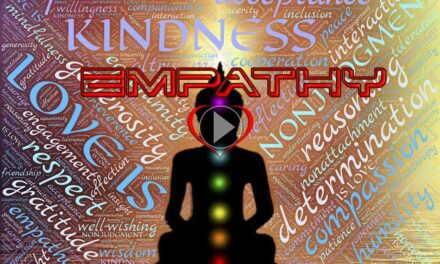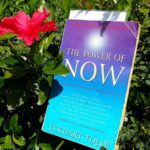How do you view your family?
When asked these questions, many people spout right into the greeting card virtues they have been coached to cite. They exclaim that family is everything and that they would be nothing without their families. Some even go so far as to say, “Without family, you have nothing at all.”
It’s a sentiment that feels true…unless you live in a toxic or dysfunctional family. In that world, things are different. They are always at odds.
That’s one of the most dangerous things about family cliches like the ones above. We cling to them as truth, but they conceal much darker realities beneath the surface. Feel-good phrases do little to improve the dangerous cycles that repeat within emotionally broken and narcissistic families.
So what can be done? Nothing until we learn to stand in the truth, away from the deceptive family delusions we sell to ourselves and future generations of children around the world.
The beginning of the toxic family narrative.
The idea that the biological family is an absolute must-have root in the very earliest days of humanity. You can track it through the evolution of the human species. Coming down from the trees, we relied on groups of other hominids to stay safe. As the human species grew and evolved into nomadic, hunter-gatherer communities, these family groups became even more important for the very basics of survival.
Fast forward to the earliest agrarian societies. Complicated hierarchies were necessary to keep these first cities and towns running. The family group changed but kept its central focus throughout the classic, dark, and middle ages. A family was necessary to feed yourself, clothe yourself, and protect yourself from the most brutal aspects of life.
Those without a family — even 100 years ago — were left vulnerable and exposed. They had no one to support them through the earliest years of life, no one to champion them or connect them with the opportunities that would allow them to provide for themselves.
As social creatures, we humans have a need for community. We thrive when we are part of a healthy, interconnected environment. But this need has been twisted into a deadly narrative. The narrative is that your biological family must take priority, even over your own mental and emotional health. Even over physical safety.
These early survival instincts have turned into a modern nightmare, with toxic and abusive families using this concept to force misery on members generation after generation. It’s become the mantra of the modern family cult. Family comes first. Even if it destroys you.
How our “family first” mentality has inflicted tremendous harm on all of us.
Accepting the truth isn’t easy. All those Hallmark cliches we like to spout about our families and their meaning in our lives? It’s a lie when you look at the abusive dynamics that so many are left to suffer with.
Most begin their most toxic relationship patterns in families who try to break their offspring. We can see the reality in that when we accept the many ways in which our traditional family narratives have created dangerous environments.
Narratives like “family over everything” or “family no matter what” can create beliefs that turn survivors away from the reality of their own experiences. They learn to gaslight themselves because they are told that the family is above question and never to be denied.
That’s a dangerous path to walk. If the family is considered to be holy and good at all times, then all negative feelings associated with them are wrong. It sets children up in a powerless position which can turn them into powerless adults. They learn how to deny themselves and the way they feel — all in the name of the family — before they even form their own identities.
The family-first narrative pushes the idea that the family must be protected…no matter what, at all costs. This includes moments of abuse and harm, which are caused intentionally by monstrous people who seek to avoid accountability (and justice).
Abusers are able to pull rank. I’m your father. I’m your mother. They are the only parents you have. This is the narrative used by the toxic family to turn their victims into villains. If you tell, you’ll tear apart the family, and then no one will love you. There are few places easier for abusers to conceal themselves. They feed on the secrecy that “family over everything” creates.
If the family is put on a pedestal beyond question, then those at the “head” of the family are inherently unquestionable too. God dynamics are created, and these one-sided power relationships foster abusive, toxic, and dysfunctional dynamics.
Consider the narcissistic parent who leans into the storyline of family above all else. They know that it’s the perfect place to hide their worst behaviors. This twisted family dynamic empowers them to create a squeaky-clean public life and chaos behind closed doors. The entire family learns to toe the line expected of them (or else).
Toxic people and abusers flock to environments where there is no accountability. They inherently breed dysfunction. The family which is beholden to old-school narratives of loyalty is the ideal place to create scapegoats and a playground of misery.
Every traumatized, broken, hurting generation of people that is created is weaker than the last. It’s not even an emotional game anymore. We know, factually, that trauma changes the DNA of offspring in toxic and chaotic families.
Toxic family beliefs play a core role in the perpetuation of these broken generations. Placing the family unit in some kind of ethereal place means no real changes can be made to it. It can be warped into whatever weapon of chaos the designers of that family want it to be.
Until we embrace a “family is no better than anyone else” or “family gets no special treatment” approach, we will continue to find abusers sending broken people into the world to create more broken people.
Can we break the cycle and create healthier beliefs?
It seems an impossible mountain to climb. Humans have spent generations feeding the idea that the family must get a special allowance. We’ve kept secrets for generations until they rotted our connections from the inside out. How do we break centuries of conditioning? Family traditions? Is it even possible for us to create healthier beliefs? Yes. If we can learn to hold ourselves and our families to higher standards.
- Hold ourselves to higher standards: The family changes we so desperately need won’t come until we ourselves start to change from within. We have to hold ourselves to higher standards, as people, parents, and members of our own families. That means seeking more compassionate behavior in ourselves, but more honesty too. We have to have better limits in what we will put up with (in terms of family).
- Hold everyone to higher standards: Once we start holding ourselves to higher standards of accountability and behavior, we can look outward. What are we accepting from others? It’s time for us to hold our families as accountable as anyone else in our lives. That admits admitting when they’re wrong and seeing our families as humans rather than infallible gods.
- Celebrate iron-clad boundaries: Boundaries are a bad word in most families. Why? Because it means saying no to people who think that the role of family entitles them to the physical and emotional labor of everyone around them. That’s precisely why boundaries need to be celebrated and enforced in families, however. We must be able to draw the line in order to create healthier family beliefs and behaviors in the future.
We are all a part of a family, whether born or chosen. The change we seek in those families can begin with us. First, in what we are willing to accept from our own families, and next in the behaviors and beliefs we hold ourselves up to. Instead of seeing the lines in the sand as shame-worthy, we have to see them as the fence lines that protect the future.
The word family comes with a lot of expectations, especially in a society that feeds the belief that the family is a holy or sacred experience. We build our parents and our siblings up on impossible pedestals, seeking fairy tale experiences that do not and cannot exist. These expectations are toxic, and they reinforce the most abusive and corrosive elements of human behavior.
If our goal is truly to create a safer and healthier future for our children, then a change must occur. It’s not enough to pay lip service anymore. Perceptions must be changed.
Our families are not more entitled to our joy than anyone else. They are not allowed to make us miserable or to undermine the quality of our lives, all because we share blood or close connections with one another. Start setting boundaries, no matter the family, no matter what they ask of you. Do it not for you, but for a better future with better families.
![]()


























